Backpacking Africa: My Top Travel Tips (After 11 Years of Travelling the Continent)
Backpacking Africa: My Top Travel Tips (After 11 Years of Travelling the Continent)
shares
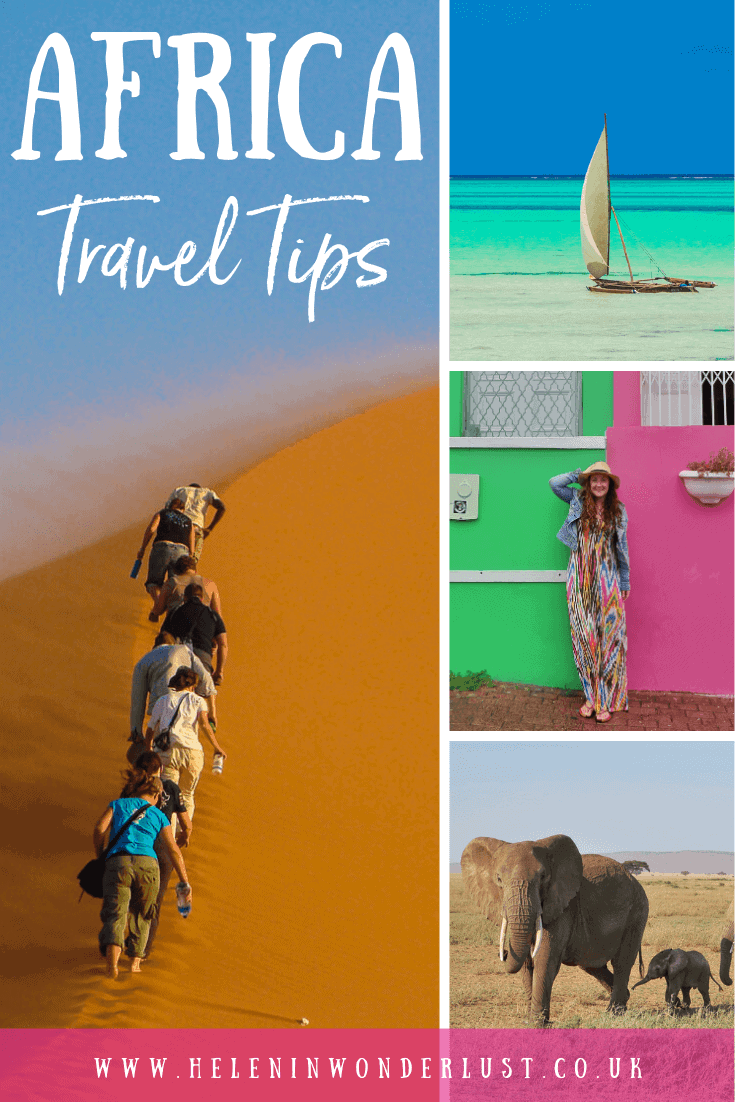
So you’ve decided to take a trip to Africa! That’s awesome!
Africa is the most incredible place on the planet (in my opinion) and I just know that you’ll love it! But I can imagine you are now feeling very excited, as well as a little bit scared!
After 10 years of backpacking and travelling around Africa, I’ve learned a thing or two, so I wanted to share a few of my best and most useful Africa travel tips with you. And believe me, travelling Africa is not half as scary or difficult as people think!
PS. This is a monster of a post, actually, it’s an old post from 2014 that I’ve completely updated for 2020 (what can I say, I have A LOT of Africa travel tips) so make sure you have a cuppa in hand before you start reading…
Why should you take my advice?
I’ve been travelling in Africa since 2009. Whilst I’ve spent most of that time in East and Southern Africa, I’ve also had lots of experience travelling in West and North Africa too and many of these tips will apply, wherever you go.
I have been an Africa travel blogger since 2013 (full-time from 2017) and for the past 5 years, I’ve been running my own small group African adventure tour company called Rock My Adventure.
I’ve also written The Independent Traveller’s Guide to Backpacking Africa, a 300-page e-book with everything you need to know about travelling Africa in an authentic, safe, fun, adventurous and ethical way.
I’ve travelled solo extensively using public transport, taken a 2.5-month overland truck tour from Nairobi to Cape Town, self-driven across South Africa and Botswana, camped in the bush, stayed in hostels and luxury safari lodges, lived like a local, hitchhiked, volunteered, and worked as a tour guide – so I’ve pretty much travelled through Africa in every way you can.
So to help you prepare for your upcoming travels, I’ve pulled together all of my top Africa travel tips and advice for travel in Africa, based on my experiences and the things I’ve learned along the way.
Whether you’re going for a couple of weeks on an African safari holiday or backpacking through multiple countries – this guide will apply to you.
Whilst I don’t want to generalise too much, as each country and region is different, but a lot of things I’m writing about here are universal. Not everything will apply to everywhere, but you’ll get the idea and have a starting point for your planning. I go into more detail in my blog posts about each individual country.
Enjoy the planning stages and use the time to prepare yourself physically and psychologically (as my friend Moses would say) for the African adventure ahead.
So get informed, get excited and most of all don’t panic!! You’re going to love it!!!
Other Africa posts you might enjoy…
Please Note: Some of the links in this post are affiliate links, which will earn me a small commission at no extra cost to you. Affiliate sales help with the running costs of this site, so thank you for your support!
My Top Africa Travel Tips (After 11 Years of Travelling the Continent)
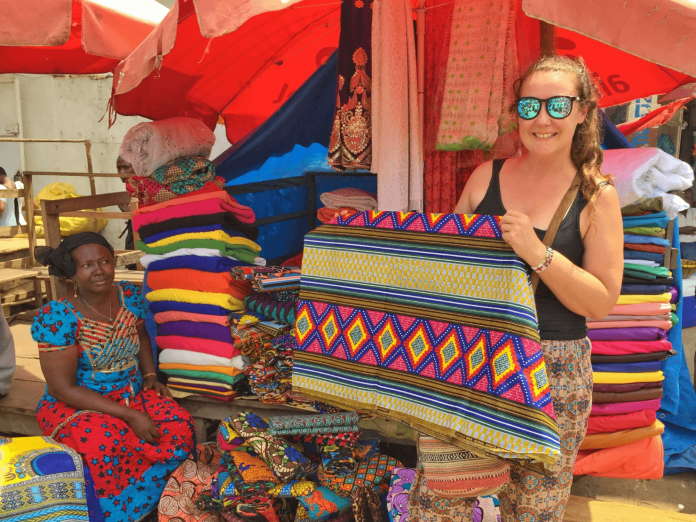
Planning Your Trip to Africa
If you are in the early stages of planning, head over to my How To Plan Your Dream Trip To Africa (in 18 easy steps) post, as this is really useful for how to get started planning your Africa trip and can be used in conjunction with this post.
Things to Consider:
- How do long you have?
- What is your budget?
- What countries do you want to go to?
- What activities do you want to do?
- Do you want to take a tour? Or travel independently? Or do a mix of both? Have a read of this post to help you decide.
- What will the weather be like? Remember lots of activities/events in Africa are seasonal.
Blogs are a great resource for planning a trip to Africa, so read away!
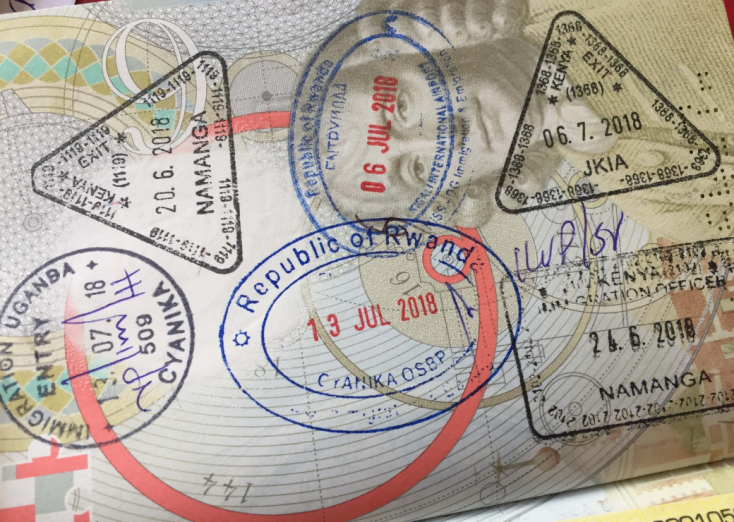
Passport Prep for Africa
To visit most African countries, your passport needs to be valid for 6 months after the date you intend to leave the country (sometimes it’s on entry date, but I always go with departure date to be sure) and you will need to have at least 2 blank pages for every country you intend to travel to.
For some countries, like Togo, a year’s validity is required.
I almost didn’t get let into Morocco because I didn’t have a free page. I had lots of space, but no free pages. They let me in, but I got a telling off from border control and it was touch and go for a while there.
So make sure you have room in your passport for the countries you intend to travel to.
If you have dual nationality, it’s worth checking both of your passports to see which one will work best for you. However, if you are travelling to different countries, you can only use one passport for the duration of your trip.
You may need to send your passport off in advance (with your Yellow Fever Certificate – see below) to apply for some visas, so be aware of timelines and don’t leave it too late, otherwise you may face an emergency trip to the embassy or even worse, they may not let you on the plane… I’ve known this to happen.
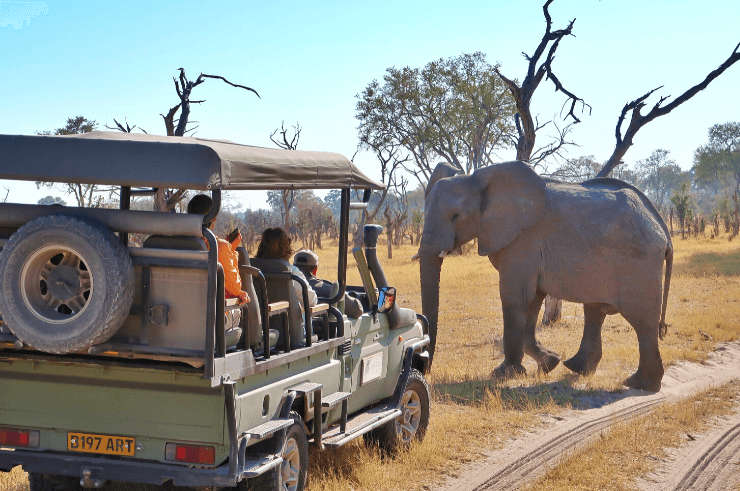
Visas for Africa
You will need a visa for most African countries, especially if you do not hold an African passport and every country in Africa has a different visa policy, so do your research.
Almost all visas cost money, usually starting from around $30+.
Some nationalities are exempt from some visas. For some countries or special types of visa you will need to apply in advance. Sometimes this is online and other times from the embassy in your own country or in a neighbouring African country.
Others you’ll be able to get at the point of entry (airport/border) – this is my favourite type.
Most East, Southern and North African countries allow most people to purchase visas on arrival (not all, but in general). Whereas most Central and West African countries require you to apply in advance.
If you are working as a volunteer or travelling on business, you will often need to get a special volunteer visa.
However, there are some exceptions and it can vary depending on your passport. Always check the rules for your nationality and your passport, as it varies.
If obtaining the visa on arrival, ensure you have the correct money in the currency required – usually dollars (sometimes euros) and have that amount easily accessible, away from your hidden cash so you are not having to rifle through your bags or counting money out in the open.
Cards are accepted at some borders, but this is the exception, not the rule, so make sure you have enough cash.
African Visa Resources:
- Project Visa: A great resource to get information on your specific visa requirements.
- Wikipedia: One of my other favourite resources for checking passport requirements is Wikipedia. It lists every country by passport and tells you what your requirements are for every other country.
You will then need to cross-check on the embassy page for the country you are visiting. Some of the embassy websites are very confusing, so if you are unsure, just give your local embassy a call and speak to someone over the phone.
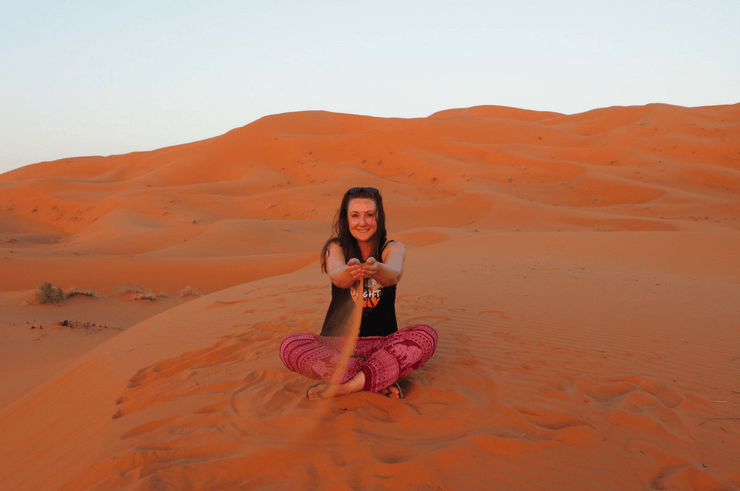
Budgeting for Your Africa Trip
How much to budget for a trip to Africa? This is probably one of the most common questions I get asked (and also see asked in the Backpacking Africa Facebook group), but one of the most difficult to answer.
It really depends. You could spend as little as $20 a day, if you camped, used local transport, ate local foods, drank only water and didn’t do any activities. But once you start adding in taxis, activities, meals out, hotels… your budget will start going up.
The easiest way to figure out how much it’s going to cost you is just to sit down with a pen and paper/excel spreadsheet and work it out. No one else can really tell you this, as it will greatly depend on how you travel.
Things to Consider:
- Where are you going? If you’re still unsure, go back to this post or have a look through some of my Africa itinerary posts.
- How many days you are travelling for?
- What are your pre-costs?
- Visas
- Insurance
- Flights
- Vaccinations/Medications
- Equipment (rucksack/clothing/tent etc)
- What will you spend on food/drink each day? Average costs are as follows:
- Local Meal = $1 – $3
- Western Restaurant Meal = $10 – $20 (can be more)
- Soda = $1 – $3
- Beer = $2 – $4
- Wine = $2 – $5
- Where are you going to stay? Average costs are as follows:
- Couchsurfing = Free
- Camping spot = $6 – $10
- Dorm bed = $10 – $20
- Private room in a backpacker/flashpacker hostel = $20 – $40
- Private room in a hotel = $30+ (the sky is the limit with this one)
- What activities are you going to do? You’ll be able to find most costs of the internet. Safaris and anything ‘extreme’ (bungy jumping, white water rafting, mountaineering) are usually the biggest expenses.
- How are you going to get around? Local buses will be cheap as chips, but taxis or coaches cost more, so maybe allow a little leeway for those days when you just can’t be arsed stuffing yourself into a local bus.
- What else will you need to spend your money on when you’re there? Visas? Souvenirs? The odd bribe?
For an in-depth look at what I spent on my first Africa, have a read of My 6-Month Africa Travel Budget post.
If you are going on a tour, it will be easier to work out your budget in advance. If you’re travelling solo, it will be a bit more of a guesstimate, but you can still get a good idea using the guide above. They usually say, ‘cost it up and then double it’.
Whilst this may sound extreme, it’s good advice as there’s always more than you expect to spend your money on. If you end up with more money than you need… great! You can always keep travelling for longer (if you have the time) or put it towards another Africa trip in the future.
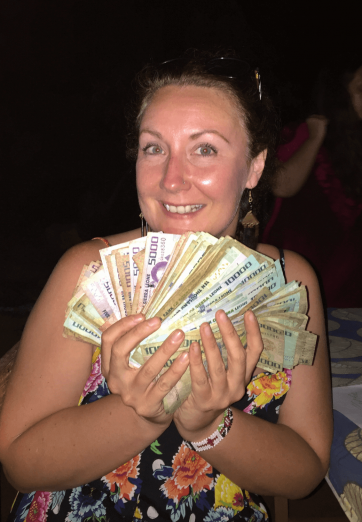
Preparing Your Money
You’re going to need to take some money with you to Africa. You’ll usually need money for your visas (if not obtained in advance) and then it’s good to have some cash (Dollars, Euros, or GBP – depending on the country your in) to change.
Some African currencies are closed, which means that you cannot get them outside of the country itself, so you will either need to take money to exchange or use ATMs when you are there. However, it’s always good to have some emergency cash to change, just in case the ATM’s aren’t working/empty.
I never carry travellers cheques as they are pretty much obsolete these days.
If I have cash on me when I arrive, I usually have most of it hidden in my carry on luggage (split into a few money wallets) and then a small amount in my everyday purse which I carry in my handbag.
I usually bring pounds (as I’m British, but you would bring your own currency) and dollars for visas and some activities. In some countries, you will need to take euros (especially in North or West Africa). If I can, I sometimes take some of the local currency too, if it’s available where I live.
Things to Consider:
- If you’re UK-based, have a look at Martin Lewis’s website to see who is offering the best currency exchange rates in your area.
- In Africa, Visa is much more widely accepted than Mastercard or any other card so always take a Visa card with you.
- Have at least 2 cards in case you lose one/it gets blocked/swallowed by the ATM.
- Remember to tell your bank where you are going, otherwise, they may block your cards.
- Try and get cards that don’t charge a commission when you take out money in a foreign country. Have a read of this article for more advice.
- All US Dollars you take must be undamaged and unmarked. Ideally, they should be the newest USD you can find, dated 2009 and later. There are lots of fake notes circulating in Africa so earlier dated notes are rarely accepted.
- There are ATM’s and FOREX bureaus in most major cities and towns in Africa but you may have to try a couple as they don’t always have enough money in.
- Before you leave a major city – make sure you have enough cash for the next part of your journey (in Sierra Leone there were very few ATM’s and none outside of the cities).
- Always carry some USD, Euros or GBP as a backup – in East and Southern Africa, US dollars are the best backup currency and in North and West Africa (generally the French-speaking countries), Euros are the best (do your research on this to make sure).
- Sign up for Western Union, just in case you need money wiring to you. There are Western Union branches everywhere.
- Download a currency conversion app onto your phone (I use Units Plus) so that you can always check how much you are paying, as it can get confusing when you are moving between countries that have similar currencies, with different values. I once confused Tanzanian Shillings with Kenyan Shillings and accidentally ordered a £50 bottle of wine at Carnivore in Nairobi. Ouch! It still makes me cringe when I think about this.
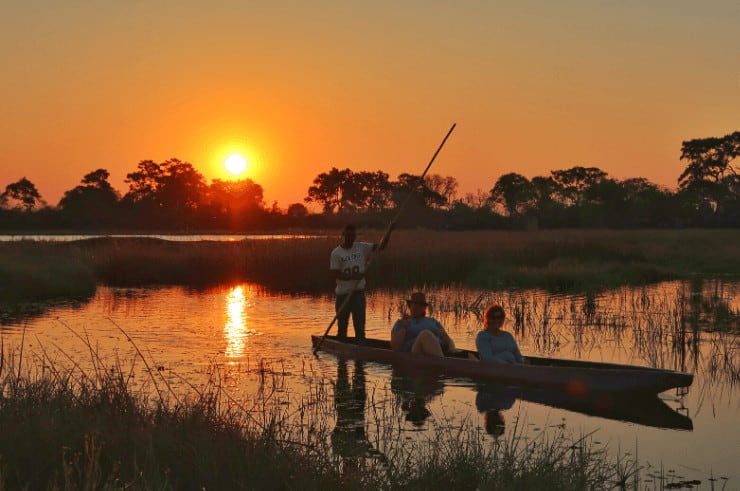
Pre-Trip Health Preparations for Africa
I’m often asked about what vaccinations, malaria and other health precautions you have to take when travelling to Africa, but I am not a doctor or medical practitioner, so I would advise you speak to one asap!
However, here’s some guidance, based on my own experiences.
The first port of call is to speak to your doctor or a specialist travel clinic – they should be able to advise you on what you need to do and your doctor may be able to give you some of your vaccinations for free, or on a cheap prescription.
For everything else go to your local travel clinic. I use Nomad Travel Clinic or Boots Travel Clinic in the UK.
Just remember that travel clinics are businesses, so they will advise you to get everything. Your doctor may be less overzealous with the injections, so you need to weigh up the risks v’s costs yourself.
The truth is there aren’t many you HAVE to take (apart from getting a Yellow Fever vaccination certificate for entry into some countries – see below), but there are a lot that you are advised to get.
Vaccinations
Aside from your routine vaccinations (MMR, Polio, Diptheria, Meningitis etc) Hepatitis A, Hepititis B (3 x vaccinations), Tetanus and Typhoid are all highly recommended.
3 x Rabies vaccinations are also recommended if you are going to be visiting any remote areas or likely to come into contact with animals.
A Yellow Fever certificate is compulsory in order to gain entry to some countries (see below).
Just remember that you need to get some over the course of a few months, so don’t leave it to the last minute.
Yellow Fever
A Yellow Fever certificate is required if you are travelling from a country where Yellow Fever is a risk (this can include transit too but only usually if you have spent more than 12 hours in a risk country).
Also have a read my Do I Need a Yellow Fever Certificate to Travel to Africa? post.
Do make sorting out your Yellow Fever certificate a priority as some countries will not let you in without it, and if you don’t have it, they’ll make you get a shot at the airport (if available) which usually costs $50.
You should also get your Yellow Fever shot at least 10 days before you enter the country.
Malaria
Malaria is rife in many parts of Africa. Taking antimalarials is a personal choice and some people don’t like them as the side effects can be a bit nasty.
I have taken antimalarials in the past (I don’t always take them now as I spend too much time in Africa to take them long-term) and if you choose to take them, your doctor can advise the best ones for you.
The one to avoid is Lariam, which is known to have quite severe side effects, including depression and psychosis.
Always test out your malaria tablets a few weeks before you go. If you do get side effects, probably best to find out before you leave home.
Some people choose to get some from home and then buy the rest in Africa as they tend to be a bit cheaper over there. Just make sure you buy them from a reputable pharmacy.
See below in the ‘Staying Healthy’ section for more info on malaria prevention (just remember some malaria tablets make the contraceptive pill ineffective).
Africa Health Resources:
To research what precautions you need to take, have a read of these sites:
- World Health Organization: is the place to find out about any particular issues that are affecting the areas you might be travelling to.
- The Travel Doctor: another great resource when looking at what precautions you need to take in which countries.
- Centers for Disease Control and Prevention: The CDC is another great resource to find out what is happening where.
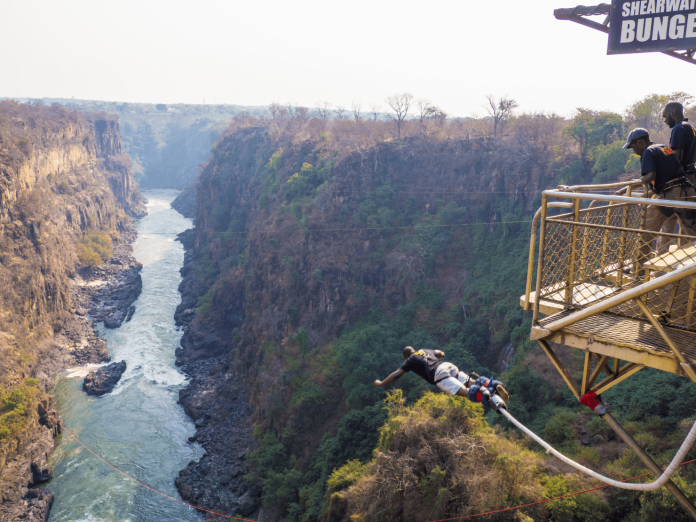
Travel Insurance for Africa
Travel insurance is SO important when travelling in Africa (or anywhere else in my opinion). Please take my advice and make sure you have it before you travel.
Medical care is not free in Africa and even the cost of getting to the hospital can be super expensive, so you need to be covered in case of a medical emergency, including air ambulance evacuation and repatriation in the event of accident or illness.
For example, if your appendix bursts whilst we are in the Serengeti, you will need to be evacuated by helicopter to Nairobi. Without insurance, you would need to pay for that helicopter out of your own pocket. Medical bills in Africa can reach into the thousands – even more, if you need an emergency flight home!
I had to go for an MRI scan (which revealed my fibroids) and treatment for a kidney infection in Namibia and my bills were a few hundred dollars.
You should also check that your insurance fully covers you for other things, such as cancellation charges, lost luggage, theft, and damages etc. If you are bringing along any electrical equipment such as cameras and laptops, you should also ensure your insurance covers those items too. Some policies only have this as an add-on.
I usually use World Nomads, Outbacker, or InsureandGo. However their basic policies do not cover all activities, so it’s always best to double-check that they cover you for the things you want to do (things like hiking over 4000m, white water rafting, and bungy jumping aren’t covered in many basic insurance policies) and the areas you are visiting.
For some African countries with travel warnings in place (like the DRC, Mali, parts of Ethiopia etc), you may need to get specialist insurance from the likes of First Allied, Battleface, or High Risk Voyager.
Covid-19 & Travel Insurance
And… now you may want to check if your policy covers Covid-19, as many of the popular companies (including World Nomads) don’t cover you for Covid-19 related cancellations or medical bills. The companies that I know of that currently have some* Covid-19 coverage include Battleface, Nationwide, Virgin Money, Allianz Assistance, Staysure, Trailfinders and the Post Office.
* Just be aware that many of these policies don’t cover you if you travel anywhere that is against the government’s travel advice, meaning your cover won’t count if you travel against it – including Covid-19 cover.
Please always read the small print.
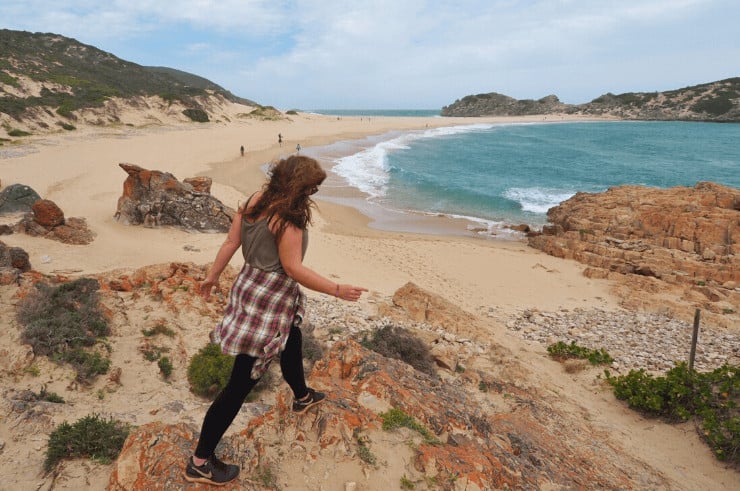
Packing for Africa
Africa is vast and even if you’re only visiting one country, you’ll likely have to pack for a number of different occasions, activities, temperatures, and cultural considerations.
You DON’T have to wear khaki or zip-off pants all the time and unless you are on safari, they’re rarely necessary. But there are a few general packing rules I live by that will cover you for all situations.
I would recommend that you read my Africa packing list posts and have a read of the below guidelines.
Africa Packing Tips:
- Check the weather. If you’re going to Sierra Leone in March, you probably won’t need much in the way of warm clothes. If you’re going to East Africa in July (especially if going on safari or hiking at altitude), you’ll need thermals, a fleece, a down jacket etc.
- Even though it’s Africa and you don’t expect it to be cold, it DOES get cold at night in many places and you will likely spend a lot of time outdoors, so you may need to take some really warm clothes.
- Dress modestly if going to anywhere local (school, market, village, border crossing etc). Shoulders are usually fine, but keep your knees covered. No mini-skirts or hot pants. Knees and shoulders should be covered in predominantly Muslim areas, such as Stone Town in Zanzibar or Lamu in Kenya. If in doubt, look at what the locals are wearing. Follow suit.
- At your hotel/round the pool/on the beach, it is usually fine to wear whatever you want.
- I always carry a scarf with me in case I need to cover my shoulders or head.
- Take at least one nicer outfit if you are planning to go to any of the upmarket hotels, however they don’t usually have strict dress codes.
- Leggings are great. You can wear these under a dress that might be too short otherwise and they’re super comfy.
- Bring some neutral coloured clothes which are especially essential if you plan on going on walking safaris or are camping out in the bush.
- Take good pair of sturdy shoes for hiking and nighttime treks to the loo.
- Girls, take a sports bra for those bumpy roads.
Other Packing Considerations:
- Leave your fancy jewellery at home.
- Take a good camera, you’ll want to capture all of the amazing things you’re going to see.
- Good feminine hygiene products are hard to come by, especially out of the big towns and cities, so take a stash with you from home.
- Toiletries are available at most major supermarkets.
- Suncream is also hard to find and can be expensive, so take it with you.
- Take a kindle/good book and have music to listen to – journeys and nights are long.
- Always have a torch, headlamp preferably. Power cuts are frequent.
- Ensure you have the right travel adapters and charge whenever you can.
- I usually have a roll of gaffer tape on me to fix anything that needs fixing.
- Don’t overpack, you’ll soon regret it when you have to carry that bag.
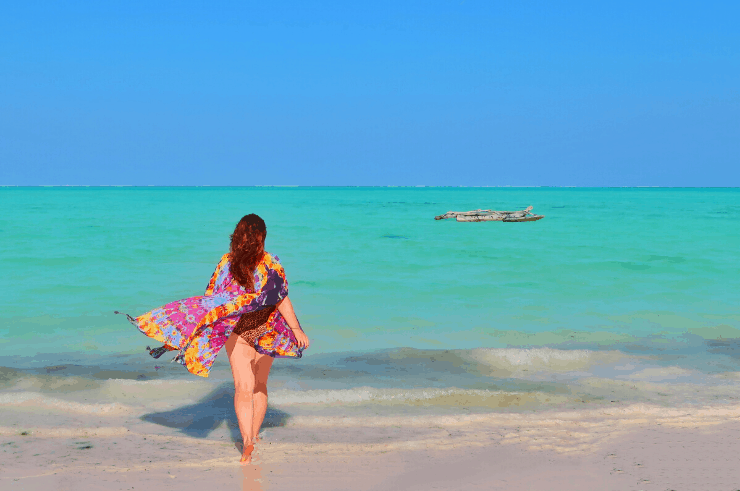
Arriving in Africa
On my very first trip to Africa, I started off in Livingstone, Zambia, where I worked as a volunteer for The Book Bus. This was a really great introduction to Africa as I was picked up at the airport and my accommodation was taken care of.
Volunteering allowed me to get involved with the local communities, visit some places most tourists never see, immerse myself in the culture, and see ger a real feel for Zambia before venturing out on my own. By the time I left for my first completely solo adventure, taking the Tazara train from Zambia to Tanzania, I felt pretty confident.
However, if you’re going it alone, or have a few days before joining a trip or volunteer programme, arriving in Africa needn’t be a scary experience.
- Arrive in daylight: Arriving in daylight (if you can) is great as it allows you to get your bearings, but it’s easier said than done and it’s not a problem if you can’t. Cheaper flights tend to arrive at night, so unless you want to pay the big bucks, you may have to take this route. But that’s ok, don’t panic! Arriving at night is absolutely fine (I pretty much always arrive in the dark due to the flight times) and there are a few things you can do to make it easier.
- Book accommodation: My advice is to always book your first night’s accommodation before you arrive. In fact, I like to book ahead when I’m arriving in any new city or town. But at least have your first night booked when you are fresh off the plane, feeling tired and disoriented. It just makes things a lot easier and if you don’t like where you’re staying, you can always move, but get your bearings first and then move on.
- Get picked up: If you’re arriving in a new place for the first time, day or night, it’s probably a good idea to get picked up. There are always taxis at the airports, some hotels and guest houses have a free shuttle or if not, they will always be able to send a driver to pick you up. Give them your flight details and you can agree the price beforehand. If they can’t/won’t – consider staying somewhere else. The driver will usually be waiting at the gate with a piece of paper with your name on.
- Don’t panic: If for any reason they aren’t there, don’t worry. Likelihood is they are just late. You will get used to ‘African Time’. There will be a number of touts/taxi drivers waiting at the gate. They’ll ask your name, but don’t give it out as they will likely tell you they are the person picking you up, even if they aren’t. Not that they’ll necessarily try and rip you off, but they want the business. If you’re being picked up, wait for that person, they should know your name! If you’re worried, find other tourists to hang out with whilst you wait, or find a member of staff who can assist you. Have the name, address and telephone number of your accommodation written down.
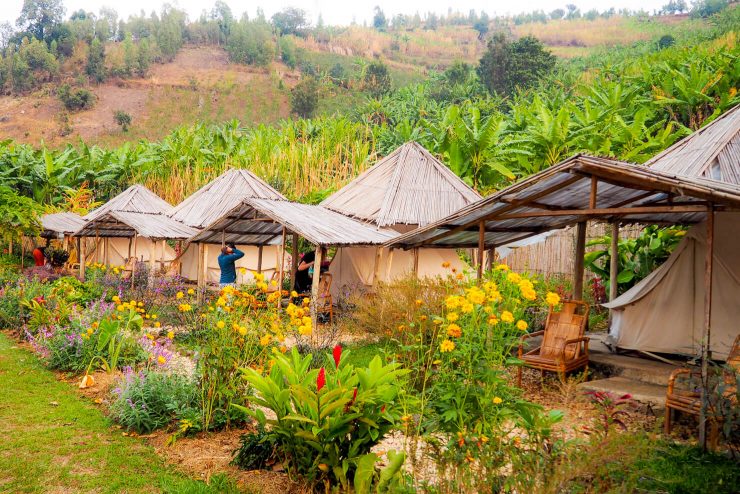
Where to Find the Best Places to Stay in Africa
There are loads of great places to stay in Africa and I find that picking the right place can really enhance your Africa travel experience.
I have listed all of my favourite African hostels, guesthouses and campsites here. Traveller and local recommendations are also a great way of finding the best spots as you go!
My favourite sites to look for and book accommodation in Africa are Booking.com and Hostelworld. I also use Google as well, as there are often cool places that aren’t listed on the booking sites, but they do have their own websites.
Just be aware that good accommodation often gets booked up in advance, especially in the peak seasons – usually July to October, Christmas to February and the South Africa school holidays. Campsites in Botswana & Namibia can book up months and months in advance!
Things To Consider:
- Is there a good common area or bar which will be good for making friends? The backpacker hostels and campsites tend to be the best places for this.
- Is it clean?
- Is it value for money?
- Does it have character?
- Do they offer activities?
- Do they have lockers/places for your valuables?
- Is it in a good location or miles away from anywhere? For me that’s near the action and/or with a great view. If you don’t have your own transport, stay somewhere that you can get to easily.
- Is there a night watchman?
- Does it get great reviews?
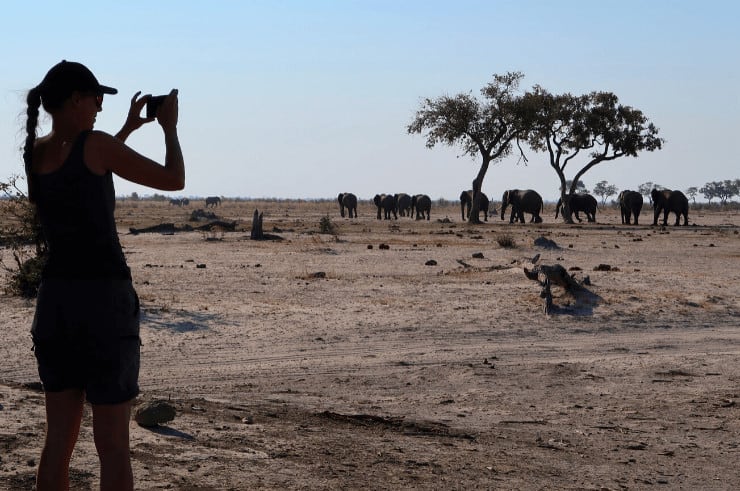
Staying Safe Whilst Travelling in Africa
Your biggest concern when it comes to Africa travel is likely to be safety.
In general, the same rules apply as they do at home and listening to the advice of those who know the local area. Common sense is the most important factor when it comes to staying safe in Africa.
General Africa Safety Tips:
- Keep an eye on travel advisory warnings. I always refer to the FCO website for up to date info.
- Ask advice from the people at your accommodation. They are your best resource for knowing where to go and where not to go in your local area.
- Do not walk around alone at night, especially in quiet areas. If you do need to venture out, take a licenced taxi. Your hotel will be able to call you a reliable one. Get them to pick you up afterwards also. If you have to walk, make sure it’s in a group and in a lively area. I’ve done this many times and never had a problem.
- If you are going out, let people know where you’re going.
- Don’t drink too much alcohol or leave your drinks unattended, especially if you are in a public place.
- If you are lost and need some help, ask a shopkeeper or someone official to point you in the right direction. I also prefer asking women for directions where possible.
- Don’t leave expensive items in your unlocked tent or dorm room. If your accommodation has a safe/lockers, use them.
- Have a small wallet with a little bit of day to day cash, and keep the main bulk of your money separate from that, either in a hidden money belt (I like the ones that loop onto your belt), or in a safe. If I don’t have access to a safe, I usually spread my money about my person.
- Don’t make yourself a target by flashing money about, wearing expensive stuff or leaving expensive belongings unattended.
- If you’re in a taxi, be aware that people could snatch your phone/bag through and open window or unlocked door, so keep your door locked or your phone out of sight.
- Walk with confidence.
- Try not to look lost, even if you are. I try to study the map and learn my directions before I head out. Or sometimes I just write them on a piece of paper or my hand. If you need to find your bearings, pop into a cafe/shop to ask directions or look at your map discreetly.
- Don’t give out your number or the name of your hotel to any random strangers.
- If you feel unsafe on your public transport, speak to the driver or get off (if in a safe place to do so).
- Dress appropriately for where you are.
- Listen to your guides on safari. Don’t get too close to wild animals unless your guide says it’s ok.
- Make a copy of your passport and store it separately to your actual passport.
- If you do (God forbid) get mugged. Be friendly and polite, I know that sounds weird, but just do it. Hand over what you’ve got. Everything is replaceable – except you.
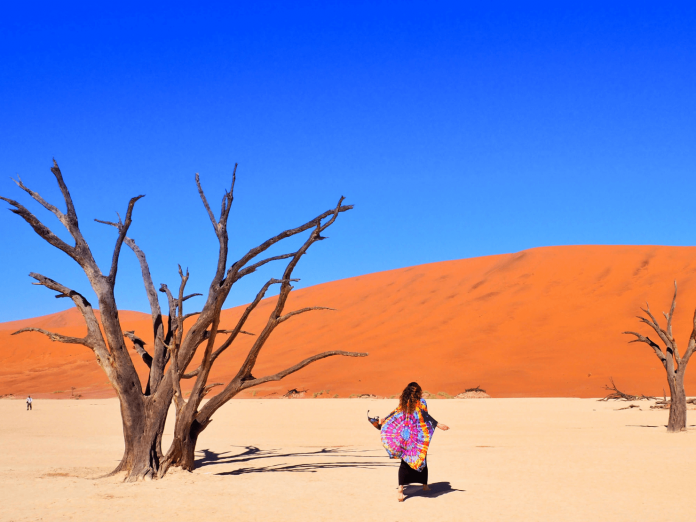
Solo Females – Dealing With Male Attention in Africa
In some countries, people might say that you shouldn’t make eye contact or look at men because it’s an invitation. In my opinion, I wouldn’t say this is a massive problem in sub-Saharan Africa, but it does happen.
I have had a few ‘situations’ where men have been a bit of a problem. I’ve never felt in any danger, but these situations were more annoying than anything and to be honest, I’ve had worse bother at home in the UK. Declarations of love at first sight and marriage proposals are common.
I’ve been offered impregnation more times than I can count. Especially in Malawi and Tanzania.
Whilst travelling alone on the train from Zambia to Tanzania, I found myself eating in the dining carriage. Despite there being a number of others in the carriage, a guy came in and made a beeline for me. I was a woman alone and I stood out. He wasn’t threatening in any way but he was drunk. I was polite to him and eventually, he said it was nice to meet me and left.
Once when I was in Kenya I made friends with the guy who worked behind reception at our hotel. He was a nice guy, young (early twenties), always chatty and friendly. He even came out with our group (and a load of others from the hotel one night). I thought we were pals. When we left the hotel, he asked if he could keep in touch by WhatsApp. I said sure. To be honest I didn’t think anything of it.
I then received a barrage of messages, a poem, and even a quite serious voice message declaring his feelings for me (there was also some quite heavy, film-type music playing in the background which made it all that little weirder).
I told him I was sorry if he got the wrong impression, but I am married and definitely not interested in him that way – at all. Undeterred, he said that he was coming to see me as he wanted to talk to me… in private. WTF?
I told him that shouldn’t come, I wasn’t interested and did not want to talk to him. I went out for the evening, my phone was in my bag, on silent. When I got home, I had about 7 missed calls and a load of messages. Â He had followed me to the next place I was staying (we’d told him where we were off to next before he went a bit weird), but luckily we’d moved hostels – so he wasn’t able to find me.
He was now angry that I hadn’t been there to meet him as he’d requested. I explained that what he had done was pretty much stalking and blocked him. I’m still baffled by his behaviour and doubt that he even realised how weird this all was.
But it isn’t just the fellas. Once I gave my number out to a girl I met in the street. I’d just arrived (on my first ever Africa trip), she stopped me to chat and she said she wanted to be my friend. Me being nice, I gave her my number. She DID. NOT. STOP. CALLING. I had to block her because it became too much.
My Top Tips for Dealing with Male Attention:
- Always be polite, but firm – set boundaries.
- Be aware that friendliness can easily be misconstrued.
- If you feel the situation isn’t great, remove yourself as quickly as possible.
- Don’t give out your number unless it’s to someone you know really well (unless you want a stalker – malicious or not).
- Consider wearing a fake wedding ring.
Dealing With Touts and Sellers
Over the years, I have perfected the ‘don’t mess with me look’. I’m so good at it, I didn’t get any harassment in Morocco, which is notorious for it.
The first time I travelled alone in Africa was a bus trip from Livingstone to Lusaka, on my way to catch the Tazara Train. I was a little too prepared for the touts when I arrived at Lusaka bus station and I think I literally knocked about 6 men out of the way as a walked off the bus in my determination not to look like a scared tourist. This may have been a tad unnecessary. As soon as I said ‘No, I have a taxi thanks’, they backed off. Just act confident and take your time to assess the situation.
One of the phrases that I guarantee will grate on you when travelling in Africa is “Come into my shop, looking is free”. The first time you hear it, it’s funny, but after you’ve walked past the twentieth curio shop in a row, selling the exact same stuff, it gets a bit annoying. But there’s nothing you can do about it – they said it to the hundred people before you and they’ll say it to the hundred people after you. Smile and say no thanks if you’re not interested but don’t lose your patience, it will achieve nothing.
At the market, look nonchalant until you’re ready to commit. If someone is following me around trying to sell something I either walk away immediately, tell them I’m more likely to buy if they stop following me (nicely of course) or I sometimes just say, “I’m not a tourist, I live here”- always seems to do the trick and people back off a bit after that.
If you do want to buy, it’s fine to bargain or trade. You may get charged more because you’re a tourist so you’ll need to weigh up whether the price is fair. Don’t pay way over the odds, but at the same time, don’t barter them down too much. Start with a price about half what you’d be willing to pay, and work up from there.Â
If someone offers to carry your bag at the airport/ferry/train station – they’ll want a tip. If you don’t want to pay them, say no thank you and carry your own bag.
On the beaches, you’ll be asked a million times if you want to buy bracelets, tours, hair braiding or whatever else they happen to be selling. Same rules apply.
People are just trying to make a buck to provide for their families.
Top Tips for Dealing with Touts and Sellers:
- Be confident when you say ‘no thanks’ and move on, don’t glance back.
- Always smile and be polite, but firm.
- Don’t lose your patience or get angry, it will achieve nothing.
- Pay the price you think is fair (and that you can afford) and you’ll never get ripped off.
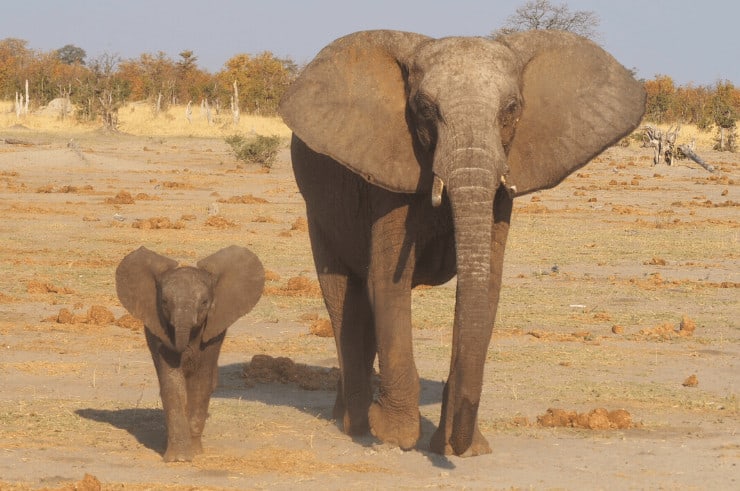
Begging in Africa
The biggest thing that gets you is when people beg or ask for money. Many people live in poverty and begging is common in Africa.
Occasionally, you’ll also be asked by people you do know too, that’s when it gets really tough to say no. It’s hard not to want to give to people who are obviously in need, but it’s not always the best thing for anyone concerned.
I once gave some left over food to some boys in Kenya who looked really hungry. It was obvious that they were glue-sniffing, something people do to stave off their hunger. What I should have done, is divided the food up equally. What I did was just hand the food to one of the boys. So what happened? They started to fight over it. I started that fight.
Giving money to kids just encourages them to beg more. It sucks not to be able to help people. But sometimes, you can cause more harm than good.
The only thing I give now to anyone who asks for anything is water bottles. This is something they will usually share with their friends.
If you want to donate something, whether that be clothes or money, do it through a recognised programme. Do not bring sweets for the kids.
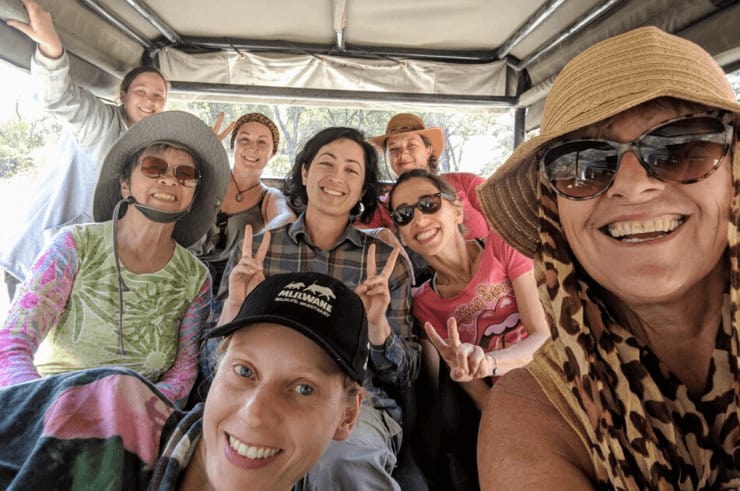
How To Make Friends When Travelling in Africa
If you are travelling alone, making friends whilst in Africa isn’t usually that difficult. It may require a little confidence and you may have to initiate the conversation, but there’s almost always someone at the hostel bar to chat to and people bond quickly in Africa because it is such an amazing and crazy place.
But there have been a few times when I haven’t met other people and have just had myself for company (like the first time I climbed Kilimanjaro), or when I’ve stayed at a fancy hotels or when we saw no other tourists in Sierra Leone (although I was travelling with on the Rock My Sierra Leone Adventure tour so I had friends).
If you are backpacking solo, you will need to be prepared for the fact that you may need to make a few journeys alone. You’ll meet awesome people in hostels and camps for sure or have a read of my 23 Places in Africa that are Perfect for Solo Travellers post to give you some ideas of where to go.
The only downside is that the likelihood of your new friends taking the exact same route as you at the same time is a lot lower than say in somewhere like Southeast Asia, where there are more tourists who are all practically following the exact same route.
I guess this is what makes solo Africa travel seem that little bit more challenging at times. But, it’s really quite fun and a lot less scary than you think!
I had no idea it was like that before I went, but it was just the challenge I needed. I learned to love my own company and it allowed me to become truly independent like I’d never been before.
For the bits you don’t want to do alone, you can always join a group for part of your trip, whether it’s for a couple of weeks, or joining a small group safari for a few days.
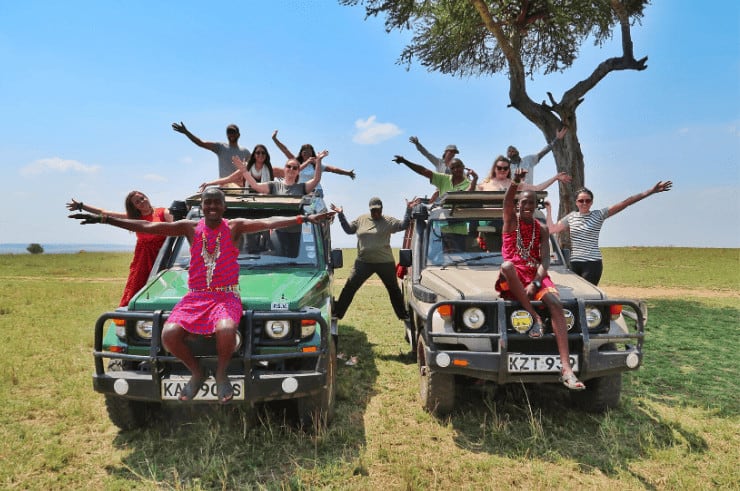
My Top Tips for Making Friends:
- Grab a beer (or soda if you don’t drink) and head to the bar. If there’s no-one there, chat to the barman/woman.
- Be brave. Just start the conversation.
- Make friends with local people.
If you don’t do that you will really be missing out. As a Rock My Adventurer, backpacker, self-driver or volunteer, you will get to interact and make friends with local people more than if you are an overland or on a luxury safari. And if you are travelling solo, your local friends will really be a lifeline at times.Â
- Join a group tour. My Rock My Adventure tours are PERFECT for solo travellers and take all the hassle out of solo travel.
- My other main tip is to try learning a few keywords in the local language, it will win you a lot of respect:
- Hello, how are you?
- What is your name?
- My name is…
- Thank you.
- You’re welcome.
- No, thank you.
Conversation Starters:
- Introduce yourself.
- What’s your name?
- Where are you from?
- How long are you here for?
- Where have you been?
- Where are you going?
It’s that easy. Before you know it, you’ll be swapping safari stories and making plans.
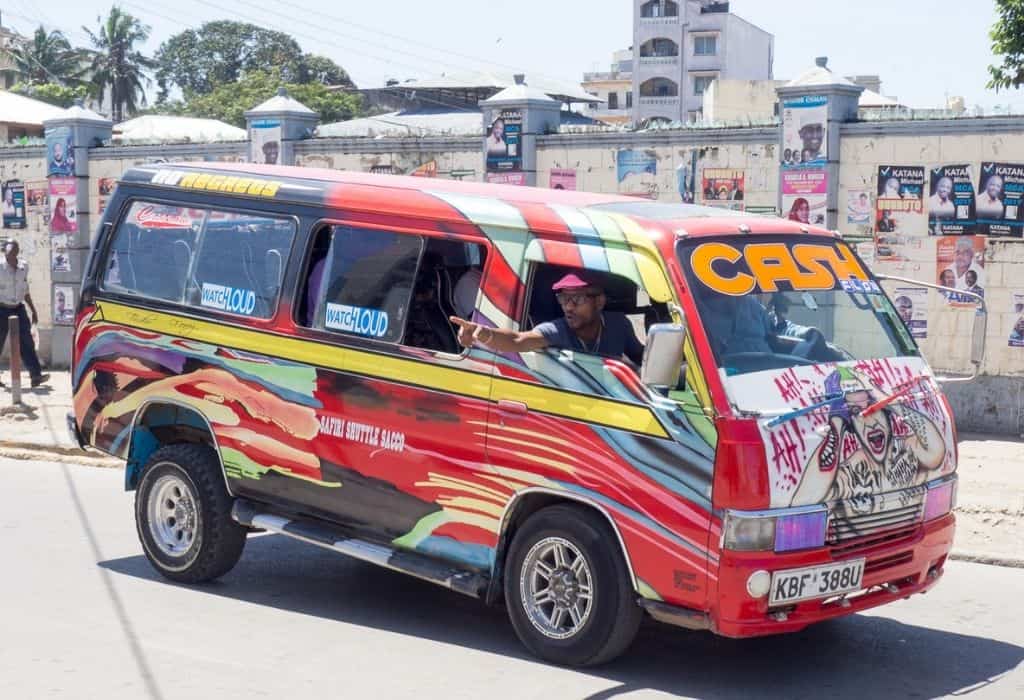
Getting Around in Africa
There are lots of options for travelling around Africa, from public transport to driving your own car to taking tours, to mixing and matching.
Solo Travel & Public Transport
Bus: The most common form of transport is the bus. They range from big coaches, to smaller minibusses known by many different names (dala dala in Tanzania, matatu in Kenya etc). Undoubtedly the bigger buses are generally more comfortable and safe as most have seatbelts. I’d recommend them, especially for long distances.
The small buses are often packed solid, only leave when they are full (so you may be waiting a while) and they often drive too fast… but they are often the quickest way to get around. I take them frequently as they’re really cheap and sometimes the only way I can get to where I need to go. For instance when I was living in Bagamoyo in Tanzania (in 2009), the only ways to get there from Dar es Salaam were to take a dala dala that cost a couple of dollars or a taxi that cost $60.
If you do take a minibus, keep the distances short and if you feel in any way unsafe, get off at the next stop where there are plenty of people around. Another bus will be along soon.
Buses are few and far between in Namibia and some parts of Botswana and South Africa, and may not get you exactly where you want to go, so you might be best taking a tour or hiring a car in that case.
My general rules for travelling by bus in Africa are:
- Travel by daylight where possible. African roads aren’t always the best, there are few street lights, animals in the roads and in some areas bandits (although this is rare).
- Don’t use the small local minibuses for long distances.
- Oh, and wear your seat belt. If there’s one provided there is no excuse not to!
Train: Travelling by train in Africa is awesome, there just aren’t enough of them. But if you get the opportunity train is a great way to travel.
Plane: If you’re short on time, need to cross an area that’s notoriously unsafe or travelling in the rainy season when roads are bad, flying is a good option.
Motorbike: Motorbike taxis (called motos, boda-bodas or piki-pikis) are common in many places, especially East Africa. Whilst they generally don’t go too fast (the roads aren’t good enough for that), very rarely will the driver have a spare helmet so you are taking a bit of a risk if this is how you choose to travel.
Boat: Taking a boat or ferry in Africa can be a really fun experience but safety regulations are not always as hot as they are at home, so my best advice is to ask around for a recommended company. Check if they have lifeboats/lifejackets and if in doubt (looks really shabby or overloaded), don’t get on.
Hitchhiking: This isn’t something I would do from the roadside personally, but I know people who have. Hitchhiking anywhere in the world carries risks, Africa is no different. If you are really on a budget, the best thing to do would be to ask the other guests (there are often overlanders who could give you a lift) or staff at your hostel/hotel can hook you up with a ride (in my experience, Africans are very well connected – especially those that work in the tourist industry)! Rarely will you ever get a ‘free’ lift.
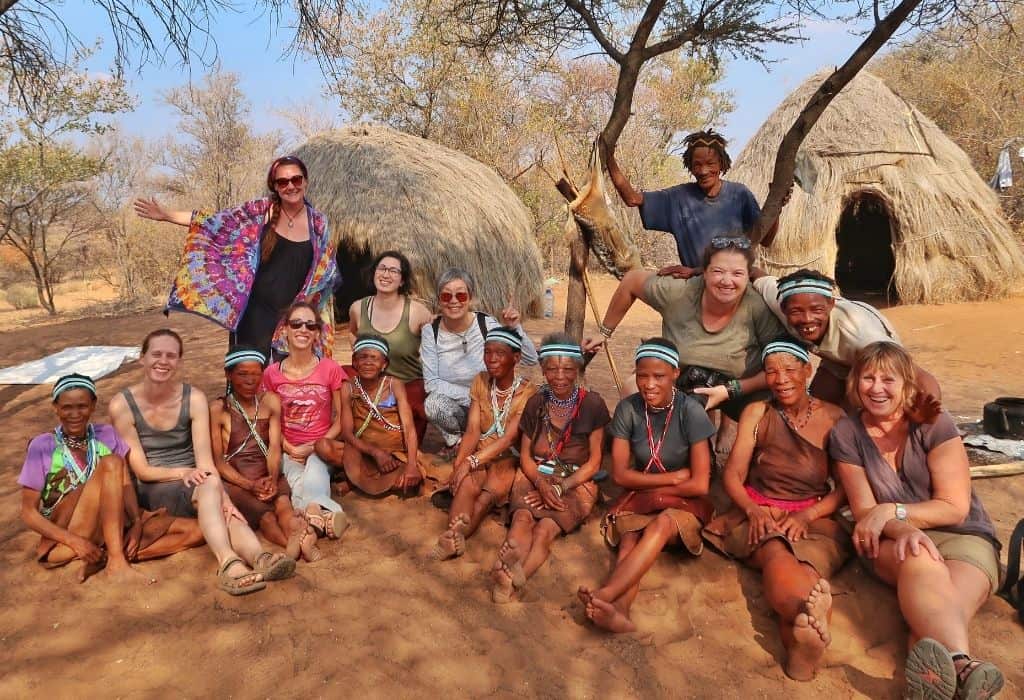
Small-Group Tour
Small-group tours are a great way to see Africa, especially for safaris or for the more remote places that are difficult to get to without your own transport. Plus they take a lot of the hassle out of finding accommodation and working out how to get from A to B.
I created my own small group tours in Africa because I wanted to create a kind of hybrid between a solo backpacking/flashpacking adventure and an overland tour. My aim is to give an authentic experience but with more comfort than solo backpacking or overlanding.
Overland Tour
If you want to travel Africa in a relatively cheap way, whilst ticking lots off your bucket list, then overlanding is a good option. This type of trip will be heaven for some people, hell for others.
An overland tour is basically where you travel together in a big group, with people you’ve never met before in a converted truck. You have a leader and driver, you’ll camp for the most part and either cook your own meals.
Overlanding is one of the most economical and safe ways to travel around Africa. Whilst it isn’t necessarily as cheap to get around as public transport and you’ll have less freedom, you may actually save money on other things such as accommodation and activities, plus you pay for most things upfront, so it makes it really easy to budget. You pay a basic price which includes your transport, food and some activities (but not visas), then you just add on any extras along the way.
You can read my thoughts on solo travel vs taking an overland tour or small group tour.
Self-Driving
Doing a self-drive is possible, but it will take a lot more research and prep than if you’re taking any other form of transport. There are a number of companies that offer self-drive packages, both guided or not and some offer back-up support. Or, you could drive your own car.
Top tips for self-driving in Africa:
- Get yourself a good vehicle – you may need a 4×4, depending on where you are going.
- Make sure you have insurance.
- Learn about the mechanics of your vehicle.
- Do your research and plan your routes well! Ask around as you go for advice.
- Fill up your petrol tank whenever you can, especially when travelling in remote areas.
- Don’t drive at night.
- Check sunrise and sunset times as the sun goes down early in many parts of Africa.
- Keep distances short.
- Always let someone know where you’re going.
- Keep a very close eye on travel warnings and avoid dangerous areas.
- Think about taking a GPS and satellite phone as a backup to your mobile phone.
- Know the legal requirements of the countries you are travelling through and ensure you have the correct paperwork. Don’t give officials any reason to fine you (especially in Mozambique where the police are corrupt AF).
- If you hire a car, check the costs for taking the car through different countries – this can add a lot to your budget.
- Carry spare water – for you and the car.
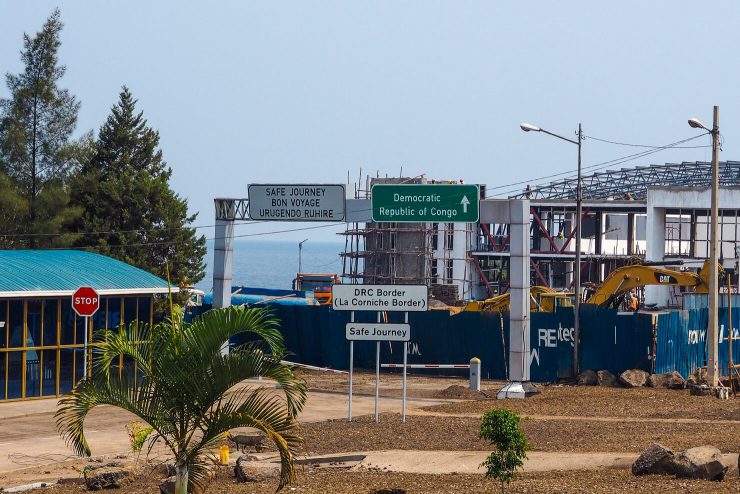
Border Crossings in Africa
I’ve completed tons of overland border crossings in Africa and I’ve only once had a problem (and that was because the internet was down at the Mozambican border), but problems can occur, so it’s best to be prepared!
Border Crossing Tips:
- Read up on entry requirements before you get there to make sure you can get in – being stranded at the border when your bus has to leave without you is probably not fun.
- Keep your day bag (with your valuables in) with you at all times. You can usually leave your big bag on your vehicle, but sometimes they make you take it with you too.
- Have a pen handy to fill in the departure and entry cards.
- Have your money ready with your passport and Yellow Fever certificate (if needed).
- Rock up to the counter with a smile. Say ‘Hello’ and ‘How are you?’, it goes a long way.
- Don’t give your visa money to any touts who offer to ‘help’ you. Only give your money to the person behind the counter.
- If anyone hassles you, find an official.
- Change a little money at the border with the money changers. It’s probably illegal, but travelling long distances without local money or getting to your destination and not being able to find an ATM or open FOREX bureau/bank is a pain in the ass.
- Watch out for traffic as some borders can be busy.
Most borders are nothing to worry about.
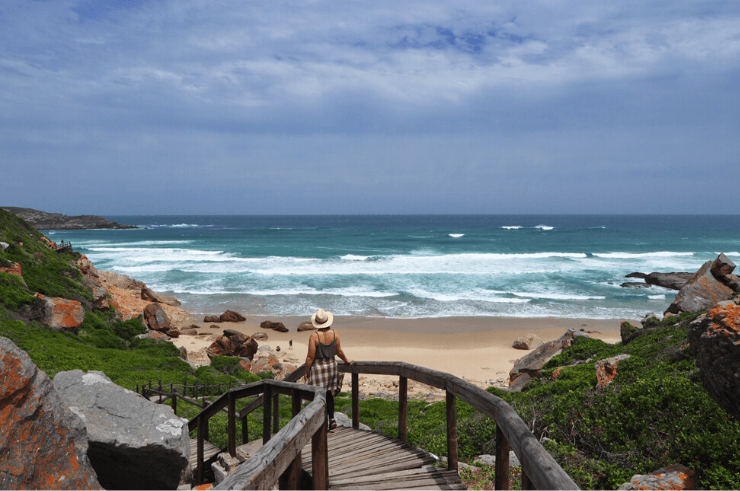
Staying Healthy in Africa
As well as getting your vaccinations and malaria tablets prior to your trip, there are plenty of other things you can do whilst in Africa to avoid getting sick.
Water: There will be some places where it is not advisable to drink the water. Ask at your accommodation and if in doubt, drink bottled water. Water is available to buy from street stalls, shops, tourist attractions and hotels or you could sterilise your own water by boiling, using a Steripen or a water filter bottle like this one.
Hygiene: One of the most common reasons for people to get sick in Africa is not washing their hands. Wash your hands before you eat and keep a bottle of hand gel with you. I like to take a nail brush to make sure my hands are extra clean.
Malaria: If you begin to feel fluey whilst your there, or even within a few months of returning home, head to the doctors as soon as possible for a malaria test. Cover up your arms/legs/feet at dusk and dawn when mosquitoes are most active. Use a mosquito repellent which is at least 50% DEET (it’s not always easy to buy repellent so take some with you) and use your mosquito net where available.
Heat/sun: To avoid heatstroke/sunburn, make sure you wear a high factor sunscreen and drink lots of water. If you’re going to be out in the sun a lot, cover-up!
Bilharzia (schistosomiasis): This is a parasite infection that you can get from water, either by swimming in it or drinking it. Ways to prevent it include drinking bottled or boiled water and avoid bathing/swimming in freshwater where a lot of people live along the shore i.e. some parts of Lake Malawi (however it’s ok to swim off the islands in the middle of the lake). Do your research and ask your guide or at your accommodation about whether it is safe to swim. For more info on Bilharzia click here.
Diarrhoea/vomiting: If the inevitable happens, keep yourself hydrated. Take electrolytes to help you replace lost salt and sugar in your body. If it doesn’t go after a couple of days, get yourself to a clinic for some medicine.
STIs: It’s easy to let your guard down when you travel, but this should go without saying. ALWAYS practice safe sex.
Rabies: Rabies shots aren’t compulsory before you go and the likelihood of you catching it is low. But to be on the safe side, stay away from animals you don’t know. They may look cute but it’s better to be safe than sorry! For detailed info on rabies click here.
Kit: I always carry a first aid kit with me (you can see what I take with me here). If you need any specific medications, take them with you as they may not be widely available. Anti-biotics and other generic medications are available over the counter from lots of pharmacies or from clinics.
Food: I’ve never had a problem eating local foods in Africa. I eat chapatis, samosas, rice and beans, plantain, ugali/nshima from street stalls and container restaurants all the time and I’ve been fine. Perhaps just avoid the usual suspects… thin-skinned fruits and veg, salads, undercooked meat and unclean looking food prep areas. This really is a judgment call, and you will know the sensitivity of your stomach and sometimes it can just be the luck of the draw.
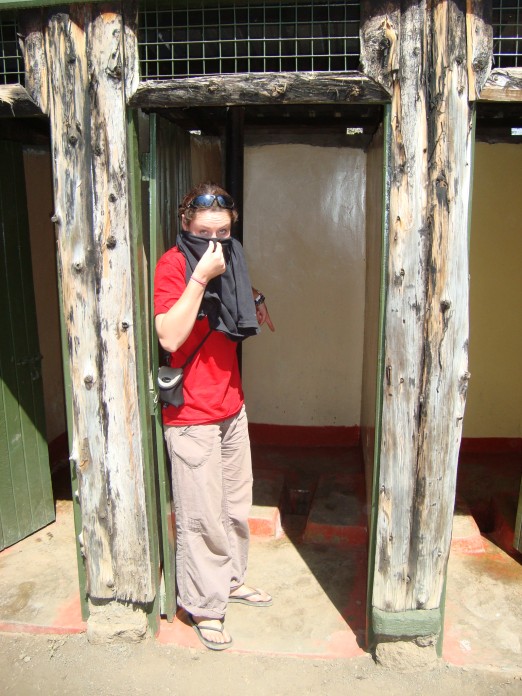
Dealing With African Squat & Bush Toilets
Anyways… oh, African toilets, you gotta love ’em.
Most of the time, you’ll be able to use a toilet, but unless you are on a really luxurious safari, you will probably come across some squat or bush toilets.
Bush toilets are when you just go… in the bush, as nature intended. This is actually quite liberating.
Squat toilets are worse than bush toilets because they often stink and are occasionally covered in wee and/or poo. Nice.
My top tips for dealing with the loos are:
- If it stinks, cover your face with a scarf (if you have anything that smells nice to put inside the scarf, like essential oil, do that).
- Squat low and wide. It will help with your aim and you’ll hopefully get less pee on your feet.
- Don’t go wandering too far off in the bush by yourself. Especially if you’re in an area with animals.
- Check what’s around before you drop your pants!
- Wear a long skirt or keep a sarong with you, that way it’s easy to hide your modesty.
- Always carry toilet paper.
- Whatever you do, do not stop drinking water because you don’t want to pee. You’ll end up dehydrated and ill, and constipated. Now, needing to pee all the time might be a pain, but being constipated is worse. Plus, you’ll end up spending longer hovering above that horrible toilet. You want to be in an out! Drink water!!!!!!!!!!!!
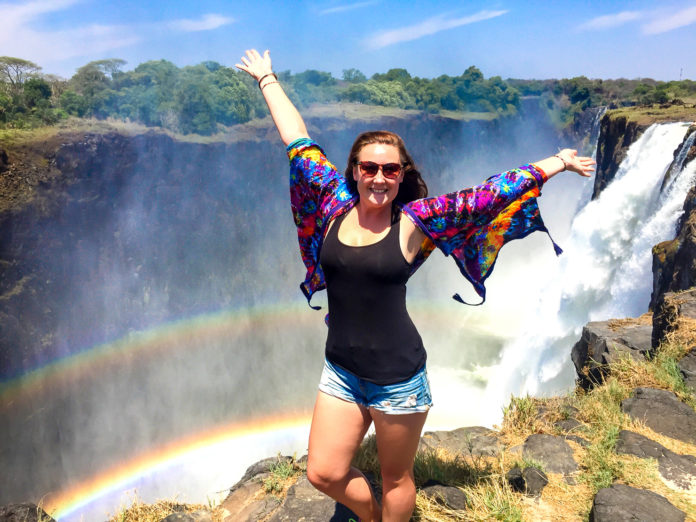
A Few Last Thoughts About Africa Travel
- Embrace the expression TIA, which means ‘This Is Africa’. It basically means, expect the unexpected, this is Africa and anything can happen. Be flexible, be patient and bring your sense of humour. Africa travel is as much about the journey as it is about the destination.
- Borrowing this phrase from my friend Moses – “Prepare yourself physically & psychologically” – your trip will be amazing, exhausting, life-changing!
-
Relax and enjoy. Africa is bloody wonderful, it will surprise you and you will fall in love with it.
Hope you enjoy your trip to Africa! Let me know how it goes!
Join one of my Africa group tours or buy my Backpacking Africa e-book!
shares















![Toni Kroos là ai? [ sự thật về tiểu sử đầy đủ Toni Kroos ]](https://evbn.org/wp-content/uploads/New-Project-6635-1671934592.jpg)


